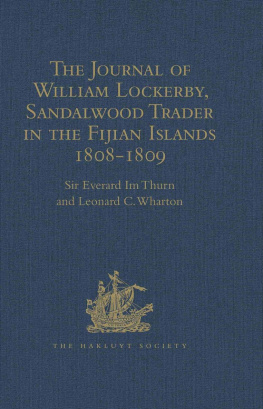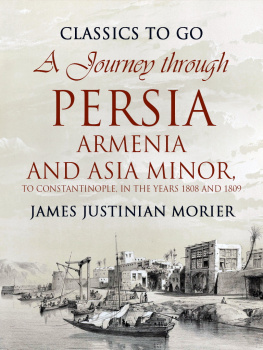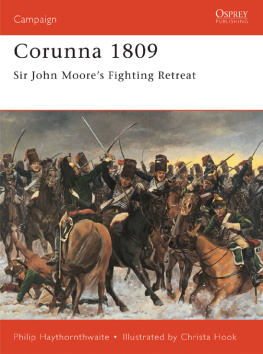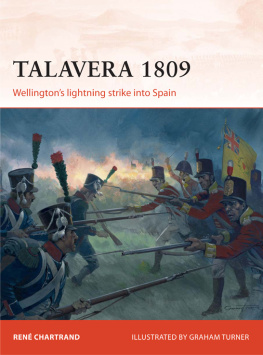This edition is published by PICKLE PARTNERS PUBLISHING www.picklepartnerspublishing.com
To join our mailing list for new titles or for issues with our books contact@picklepartnerspublishing.com
Text originally published in 1828 under the same title.
Pickle Partners Publishing 2013, all rights reserved. No part of this publication may be reproduced, stored in a retrieval system or transmitted by any means, electrical, mechanical or otherwise without the written permission of the copyright holder.
Publishers Note
Although in most cases we have retained the Authors original spelling and grammar to authentically reproduce the work of the Author and the original intent of such material, some additional notes and clarifications have been added for the modern readers benefit.
We have also made every effort to include all maps and illustrations of the original edition the limitations of formatting do not allow of including larger maps, we will upload as many of these maps as possible.
NOTES ON THE CAMPAIGN OF 18081809, IN THE NORTH OF SPAIN.
IN REFERENCE TO SOME PASSAGES IN LIEUT.-COL. NAPIER'S HISTORY OF THE WAR IN THE PENINSULA, AND IN SIR WALTER SCOTT'S LIFE OF NAPOLEON BONAPARTE.
BY LIEUT.-COL. T. S. SORELL,
MILITARY SECRETARY AND AIDE-DE-CAMP TO SIR DAVID BAIRD, DURING THE CAMPAIGN.
PREFACE.
The following Notes have been written with a design of placing in a correct point of view the proceedings of the division of the British army which landed at Corua, under the command of sir David Baird; and of pointing out some mistakes which occur in late publications, relative to the Campaign of 1808-1809, in the North of Spain. This, it is thought, will be best accomplished by giving extracts from the original correspondence on the subject; which, as many of these extracts have not yet been published, may at all events furnish matter of reference to the future historian. It is intended to show
1st, That every effort was made to prepare the division which landed at Corua for the field, and to effect its junction with that under sir John Moore.
dly, That sir David Baird did not, as stated by Lieutenant-Colonel Napier, in his History of the War in the Peninsula, retire from Astorga to Villa Franca, until ordered to do so by sir John Moore. And,
3dly, That the disorder and irregularity which attended the retreat ought principally to be ascribed to the fatigues and privations which the army underwent, and not to any want of exertion on the part of the officers in command.
In laying these Notes before the public, the writer has not the slightest intention to detract from the general merit of the works to which he has occasion to refer, but is actuated solely by considerations of public justice and private friendship.
London, June 20, 1828.
NOTES, &c.
In lieutenant-colonel Napier's account of the early part of the campaign of 1808-1809, that officer notices the want of assistance and co-operation that both sir John Moore and sir David Baird experienced from the Spanish government and authorities. It would not, therefore, be necessary to advert to that period, were it not that the events which then occurred are so intimately connected with those which followed, that it would be impossible to fulfil the object I have in view without alluding to our earliest transactions in Spain.
It may, however, first be proper to notice an error in sir Walter Scott's Life of Napoleon Bonaparte {1} , although that error has not escaped the attention of lieutenant-colonel Napier. Sir Walter Scott is mistaken in supposing that sir David Baird was sent by sir John Moore to Corua. Sir John Moore was serving with the British troops in Portugal, under the command of sir Harry Burrard, when the English government determined to employ a force in Spain under sir John Moore's orders. Sir Harry Burrard was directed to place twenty thousand men of the troops already in Portugal under the command of sir John Moore, and about twelve thousand were sent direct from England to Corua, under sir David Baird. The plan of the campaign was framed in England by the British government, with the advice of the marquis de la Romana. It was intended that the British troops should advance towards the Ebro in support of the native armies, then represented to be in great force, and in the most efficient order. Indeed, such was the delusion which prevailed at the time in this respect, that the only fear expressed in Spain was, that the French might escape across the Pyrenees; and the plans most frequently discussed were those for an invasion of France. Sir John Moore had the option of proceeding by sea from Lisbon to Corua, uniting there with sir David Baird's force, and marching his whole army through Galicia, or of moving the corps at Lisbon through Portugal. He preferred the latter alternative, and directed sir David Baird to advance from Corua on Astorga, whilst he proceeded from Lisbon to Salamanca, intending to form the junction at a point in Spain to be afterwards determined on. From the reports he had received respecting the state of the roads through Portugal, he was induced to send the cavalry and the principal part of his artillery by a circuitous route through Merida, Almaraz, and the Escurial.
On the 13th of October, 1808, the fleet of transports which conveyed the division of British troops under sir David Baird to Spain, anchored in the port of Corua. The nature of his reception, and of some of the difficulties which he experienced in preparing his corps for field service, will perhaps be best shown by a reference to part of his correspondence.
Sir David Baird to sir John Moore, at Lisbon.
Corua, 13th October, 1808.
I have the honour to report to you my arrival in the port of Corua, in command of a division of his majesty's forces, and to transmit, for your information, a return of the strength of the different corps of which it is composed.
My instructions from lord Castlereagh direct me, after reporting my arrival to you, to lose no time in disembarking the troops, and, immediately on clearing the infantry transports, to send them to Lisbon, for the purpose of receiving on board part of our force there, destined to act in this part of Spain, in conjunction with the troops from England, under your orders. An unexpected difficulty has, however, arisen to prevent an immediate obedience to these orders, as the junta of this province does not consider itself authorised to receive us, or to permit our disembarkation, without the previous sanction of the supreme government of the kingdom. An extraordinary courier has accordingly been despatched to Madrid to obtain this permission; and I have written to Lord William Bentinck, in that city {2} , urging him to use every effort in his power to obtain a speedy and favourable reply to our application; on receipt of which I shall lose no time in carrying my instructions into effect, &c.
Sir David Baird to sir John Moore.
Corua, 15th October, 1808.
Instead of arrangements being made for our reception, as I was led to expect would be the case, the provincial government was not only unprepared to receive us, but appears disinclined to afford us any active assistance.
As we brought no money with us, I have been compelled to endeavour to obtain a supply, and I am in expectation of procuring five thousand pounds. I am afraid we shall find great difficulty in fulfilling that part of my instructions which relates to the purchase of horses and mules, as they appear to be extremely scarce in this province.








